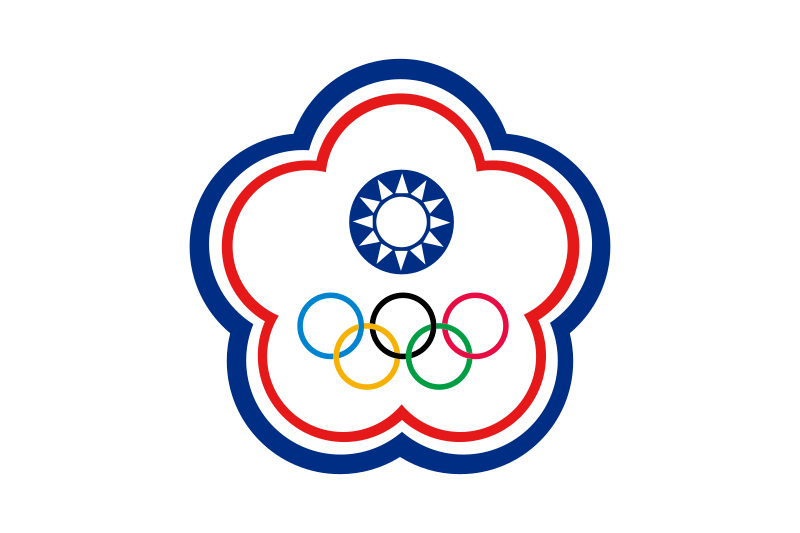What’s in a name? In the geopolitical delicacy of east Asia, a lot.
That’s why a group of Taiwanese citizens raised so many eyebrows when they submitted hundreds-of-thousands of signatures last week asking for a public referendum on how the state would be recognized at international sporting events.
The state of Taiwan, which lives in a sort of stare-down with China, have a population of around 23 million, and their own Olympic team. Taiwan (also known as is fully self-governing, but under constant threat by the People’s Republic of China (mainland China) of military action in the event of any formal declaration of independence.
The complex history of politics of Taiwan (read more on the Wikipedia page here) dates back more than a hundred years, when Taiwan was under the rule of Japan after being ceded by the Qing Dynasty in May of 1895. The area was renounced by Japan after World War II, when different sides were fighting for control of China. Via a Chinese Civil War, a certain political faction retreated to Taiwan (the Republic of China), and the modern-day government known throughout the world as “China” (the People’s Republic of China) believe that they are the only rightful government.
The nuanced details go much deeper, but for the purposes of the discussion of sports, know that while Taiwan sends its own teams to international sporting events, the PRC is the only recognized government of China by the United Nations, and only around 19 countries or states have formal diplomatic relations with the Republic of China (Taiwan). Under pressure from their neighbors, Taiwan competes at the Olympics (and at many other international events) as Chinese Taipei. At the Asian Games, Taiwan (or Chinese Taipei) are not allowed to compete under their own flag, instead using the banner below, which is the outline of a 5-petaled plum blossom.
When Taiwan wins a gold medal, the National Flag Anthem of the Republic of China is played instead of the National Anthem of the Republic of China.
For those who accept the non-universal argument that Taiwan is, in fact, just a part of China, Taiwan is not the only team that competes separately from their sovereign state. Since 1996, a National Olympic Committee can only be recognized by the Olympic Charter after recognition as an independent state by the international community (which is a threshold that Taiwan would not likely meet). But, those new rules do not apply retroactively, so the IOC has not had to answer the no-win answer to Taiwan’s sovereignty. The IOC currently recognizes 206 National Olympic Committees: the 193 member states of the United Nations, Palestine, the Cook Islands, Kosovo, Taiwan, and 9 less-disputed dependencies: American Samoa, Guam, Puerto Rico, the US Virgin Islands, Bermuda, the British Virgin Islands, the Cayman Islands, Aruba, and Hong Kong. In some sub-Olympic competitions, such as the swimming World Championships or Commonwealth Games, there are other dependent states that compete independently, such as the Faroe Islands or the home nations of the United Kingdom.
Taiwan was not allowed to compete in the 1976 Olympics in Montreal unless it stopped using the name “Republic of China.” They boycotted the 1980 Olympic Games over the name “Chinese Taipei” before first using it in 1984.
In a referendum that threatens to tip the delicate equilibrium of the Olympic question, though, campaigners in Taiwan have submitted enough signatures to trigger a public referendum about referring to the country as “Taiwan” rather than “Chinese Taipei” in future Olympic Games. To be specific, they obtained 520,000 signatures, which is well-over the 280,000 signature threshold.
Presuming final approvals by the Central Election Commission, the matter would go on the November 24th public ballot. If at least 25% of Taiwan’s eligible voters vote ‘yes,’ and there are more ‘yes’ votes than ‘no’ votes, then the government must draft a bill reflecting the results to be voted on by the Parliament.
Beijing has already taken notice of the campaign, saying that Taiwan would “swallow its own bitter fruit” if the change happened, threatening to block them from competition at future international sporting events.
Chinese Taipei has won 24 Olympic medals in its history, including 5 golds, since the two entities were both invited for the first time to the 1952 Games. They won their first gold medal in 2004 when Chen Shih-hsin and Chu Mu-yen won the women’s and men’s, respectively, flyweight divisions of Taekwondo. Chinese Taipei has never competed in volleyball (beach or indoor) at the Olympic Games, but has won 5 medals (all bronze) in volleyball at the Asian Games.


Leave a Reply